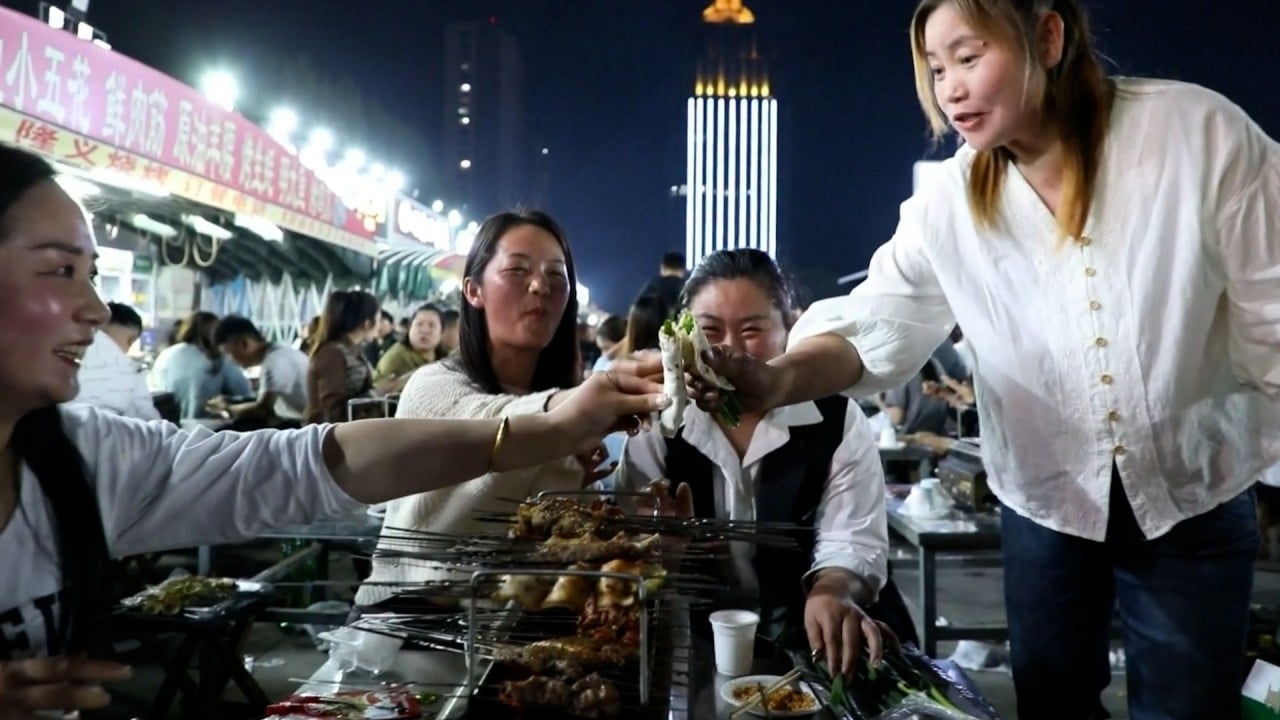
Chinese city plans months of rock ‘n’ roll events to crank economy to 11
- Shijiazhuang in Hebei province is planning a ‘Rock Home Town’ series through October, but details remain scarce
- Local authorities saw what a massive barbecue festival did for a third-tier Chinese city earlier this year, and they’re hoping music pulls in similarly large crowds
The province that surrounds Beijing wants to rock ‘n’ roll. It’s not yet saying when, and it’s not saying who, but for three straight months, Hebei will be bumpin’.
Authorities in Shijiazhuang, the provincial capital, are hoping that this long stretch of large-scale musical performances and festivals – part of the “Rock Home Town” event – will serve to amp up consumption and revitalise the region’s economy.
Details remain scarce, but the slate could kick off in the coming weeks and last until October, local media Shijiazhuang Daily reported on Thursday.
And many local authorities across the country, perhaps wondering why they didn’t think of the idea first, are now scrambling to create the next big thing – the next shot of post-Covid adrenaline that takes social media by storm.
Because at the moment, the momentum behind China’s economic recovery has been losing steam, with overseas orders receding and weak investment leading local authorities to pin greater hopes on consumption.
No ‘bazooka-like stimulus’ as China checks toolbox to get economy back on track
Shijiazhuang authorities expect that the city’s long history of rock ‘n’ roll makes the music festivals even more of a draw, and they are hoping to feature prominent domestic bands and rock stars.
The second-tier city plans to set up multiple rock venues on its shopping streets, along with tourist attractions, while making performances more common and fostering local bands, the report said.
The city also plans to invite experts, music festival organisers and heads of related enterprises to convene a rock ‘n’ roll summit to discuss the establishment of the city’s local brand.
“Music festivals attract mainly the younger generation, and they can be a strong pull for a range of consumption, such as hotels and shopping malls,” said Lin Huanjie, a tutor with the School of Tourism Management at Sun Yat-sen University.
“I can tell the Shijiazhuang government is making long-term preparations for the events, thus the consumption can be more sustainable,” said Lin, who is also the dean of the Institute for Theme Park Studies in China.
With the spending heat quickly fading in Zibo, Lin said local governments should opt for a longer-term, healthier development model for tourism activities, such as all kinds of music events.
“During the pandemic, our band could only have up to six commercial shows a year, but now we get invited to at least eight shows a month,” the 27-year-old Yi Shan, a lead singer of a Hangzhou-based underground band, told the Post.
More and more small cities in China are launching music festivals, and freelance young musicians are earning a decent living, said Yi, who is also planning to perform in Shijiazhuang.
Revenue from large-scale concerts and music festivals exceeded 1.2 billion yuan (US$160 million) in the first five months this year, compared with 1.66 billion yuan for all of 2022, according to data from the China Association of Performing Arts.
China’s economic backbone, private firms decry lack of parity in policy support
When famed singer Xue Zhiqian held a two-day concert in mid-March in Quzhou, a fourth-tier city in eastern China’s Zhejiang province, the city received about 107,200 tourists, according to a report by Zhejiang Media Group on March 24.
It also said that, apart from the concert’s revenue of 124 million yuan, the spending on tourist attractions and other related industries driven by it brought 690 million yuan to the city.
Chief economist at the Industrial and Commercial Bank of China (ICBC) International, Cheng Shi, published a study on May 9 about the importance of consumption to China’s post-Covid recovery.
According to Cheng’s study, the contribution of consumption to China’s current economic growth is 2.7 times that of investment, which is nearly two times higher than the global average.


